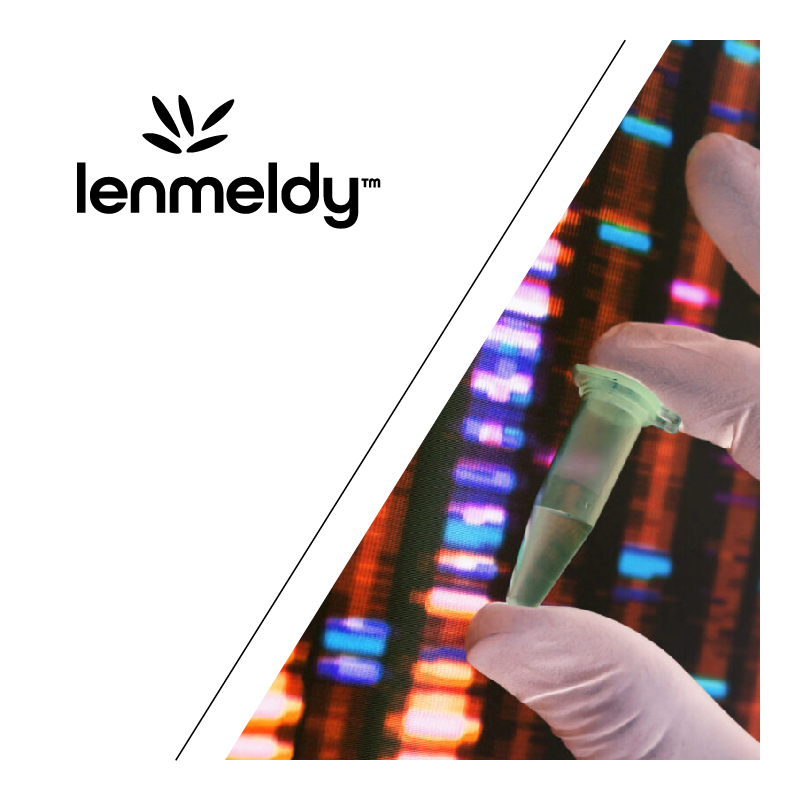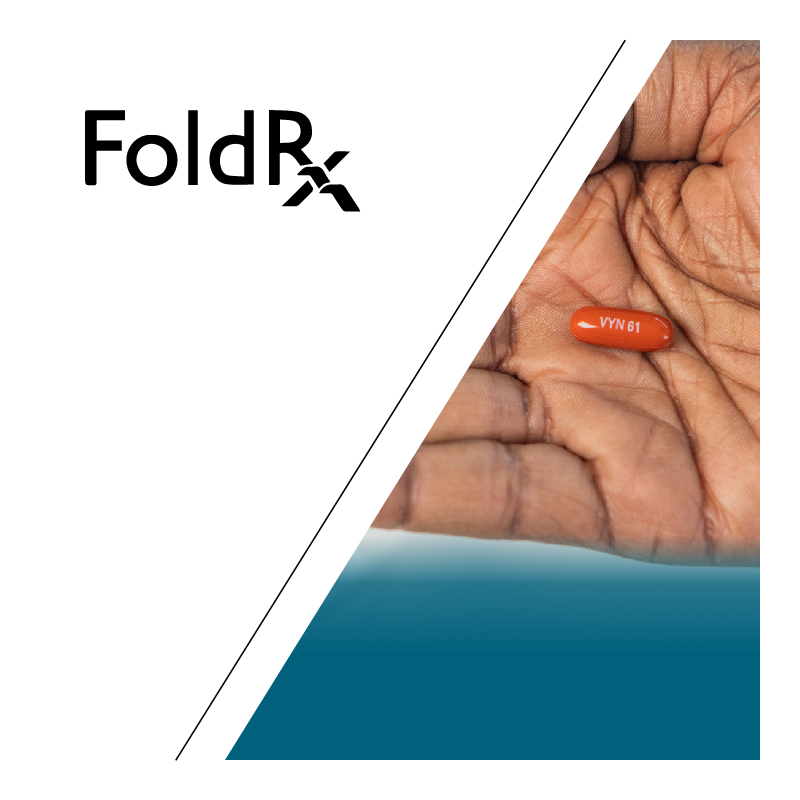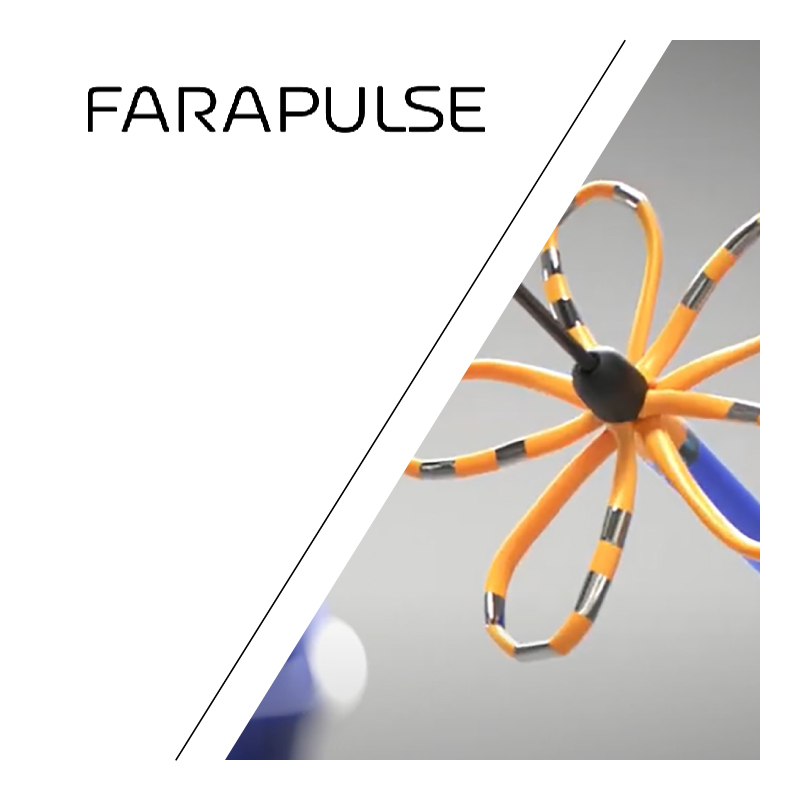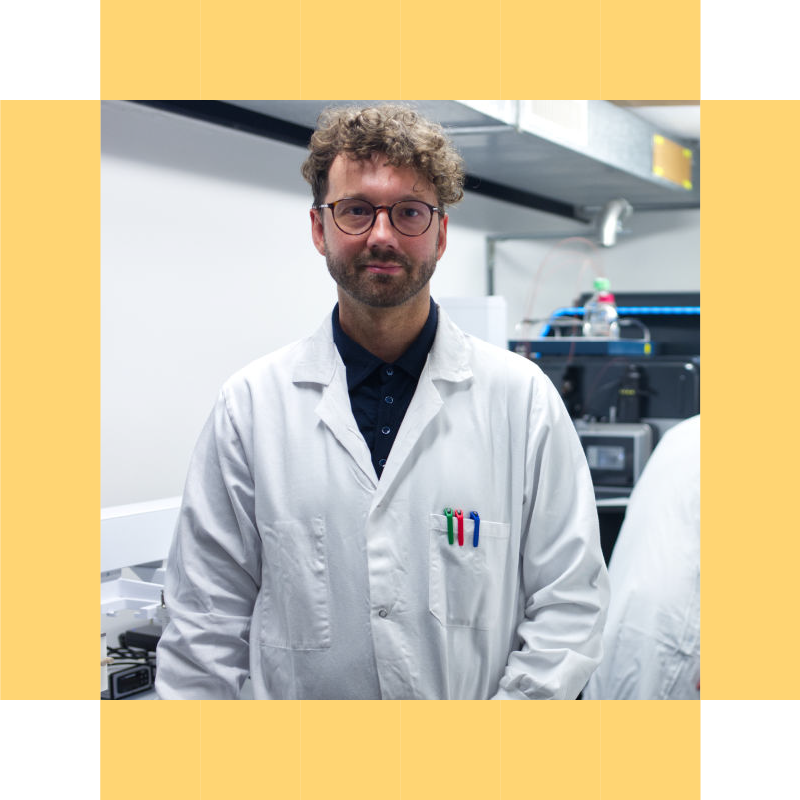Pioneering Progress: The Lenmeldy™ Story

Orchard Therapeutics
Location
London, United KingdomSector
Life SciencesInitial Investment
2016Status
AcquiredPublic
Pioneering Progress: The Lenmeldy™ Story
Orchard Therapeutics’ Lenmeldy™ is a first of its kind treatment for an ultra-rare pediatric hereditary disorder.
F-Prime is dedicated to advancing pioneering science and technologies that redefine patient care. Since 2002, F-Prime has facilitated the regulatory approval and commercialization of 33 products and drugs. In our series, Pioneering Progress, we will be showcasing the success stories behind the approval of drugs and products from our portfolio companies.
A Devastating Childhood Disease
Metachromatic leukodystrophy (MLD) is an ultra-rare hereditary disorder caused by mutations in the ARSA gene which render the body unable to break down certain lipids inside cells. This results in progressive destruction of a fatty protective layer on the outside of nerve cells called myelin, leading to impairment of an individual’s movement, severe neurological decline, and ultimately death.
MLD is estimated to affect 1 in 40,000 to 1 in 160,000 live births worldwide1. The disease most commonly manifests in infants and young children, though it can present later in life. Symptoms vary depending on the age of onset but typically include muscle weakness, difficulty walking, loss of motor skills, cognitive decline, seizures, and loss of vision and hearing.
Historically, there has been no way of stopping the disease’s progression and treatment options have been limited to symptom management and supportive care.
New Hope for MLD Patients
Recognizing the potential for bone marrow gene therapy to transform how patients with ultra-rare diseases such as MLD are treated, F-Prime partnered with Bobby Gaspar, M.D., Ph.D., a world-renowned physician and Professor of Pediatrics and Immunology at University College London’s Great Ormond Street Institute of Child Health. Working with Bobby and his global network of academic collaborators, F-Prime formed a new company called Orchard Therapeutics.
Using the combined expertise and resources of F-Prime, Bobby and his collaborators Orchard assembled a portfolio of gene therapies that act on the bone marrow of patients. In 2018, Lenmeldy™ entered the spotlight when Orchard acquired the gene therapy programs of GSK, as the big pharma pivoted away from rare disease.
“As a leading expert in bone marrow gene therapy for severe inherited disease, Bobby brought deep technical and clinical know-how to fuel Orchard’s R&D. F-Prime supplemented his expertise with a company creation engine,” said Alex Pasteur, Ph.D., Partner at F-Prime. “We were a thought partner to Bobby throughout the founding of Orchard, and we helped him to acquire the Lenmeldy program from GSK.”
Throughout its development, Lenmeldy consistently generated promising clinical data, which earned the project lead program status within Orchard’s pipeline. Due to the rarity of MLD, it was essential to educate regulators and other stakeholders about the natural history of the disease, difference clinical methods for assessing symptoms, and Orchard’s new approach.
Upon reaching market approval in Europe in 2020 (as Libmeldy™) and in the U.S. in 2024 (as Lenmeldy™), the therapy became the first-in-class disease-modifying treatment for MLD patients. At the time of approval, the product had the most extensive follow-up data for any gene therapy in the U.S., demonstrating the treatment’s long-term safety and efficacy.
The approval of Lenmeldy was based on studies involving 37 children who received a single dose of the gene therapy2. Remarkably, 100% of children with pre-symptomatic late infantile (PSLI) MLD who were treated with Lenmeldy were alive at six years old, while only 58% of children in the natural history group survived to that age. At five years of age, 71% of children treated with Lenmeldy were able to walk independently, and 85% exhibited normal language and performance IQ scores – outcomes that had not previously been observed in MLD children. Additionally, a slowing of motor and cognitive decline was observed in children with pre-symptomatic early juvenile (PSEJ) and early-symptomatic early juvenile (ESEJ) MLD.
Stakeholder education remains a priority for Orchard post approval of Lenmeldy, with the focus shifting from regulators to physicians and payers. To ensure that the full patient population benefits from Lenmeldy’s curative potential, it has been important for Orchard to accelerate adoption by rolling out standardized diagnosis and newborn screening programs.
Empowering Change with Strategic Investment
We extend our appreciation to Bobby, his collaborators and the entire Orchard team for their efforts throughout the journey of Lenmeldy, which marks a groundbreaking advancement in the treatment of MLD. The success of Lenmeldy not only transforms the outlook for MLD families but also demonstrates the potential for bone-marrow gene therapy to address other severe inherited neurometabolic diseases.
“Our partnership with Bobby – who has spent 10 years at Orchard immersed in company creation, clinical development, regulatory engagement and business development – continues with Bobby joining F-Prime as Venture Partner, ready to help F-Prime build another company with an innovative approach and a mission to help patients in life-altering ways,” said Pasteur.
F-Prime is committed to building transformative companies by supporting the next generation of innovators as they tackle the toughest challenges in healthcare. The success of Lenmeldy serves as an inspirational example, offering hope to MLD families and fueling continued efforts toward future breakthrough treatments for rare diseases.
- Chang, SC., Bergamasco, A., Bonnin, M. et al. A systematic review on the birth prevalence of metachromatic leukodystrophy. Orphanet J Rare Dis 19, 80 (2024). https://doi.org/10.1186/s13023-024-03044-w
- https://www.fda.gov/news-events/press-announcements/fda-approves-first-gene-therapy-children-metachromatic-leukodystrophy


